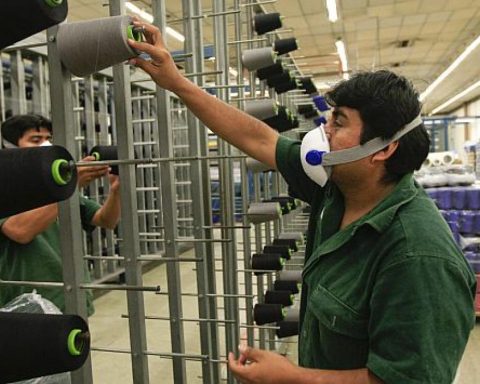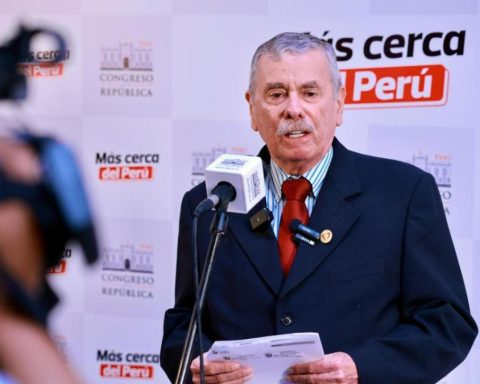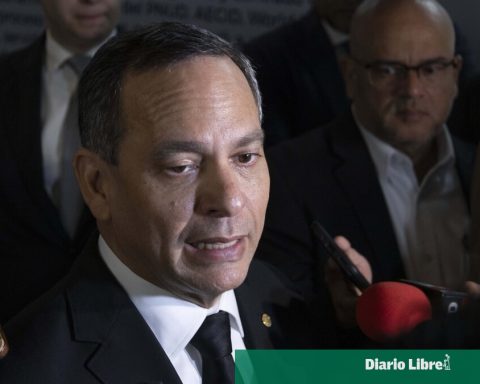“The third time’s the charm”. With this phrase, after a new cabinet council, the Government of President Gabriel Boric announced that the “long-awaited” pension reform will be presented next week.
The Minister of the Interior, Carolina Tohá, pointed out that in La Moneda they are convinced that this reform will mean for citizens “a response to a long-sought desire, to have a pension system that responds to the desire to live peacefully in old age , but also to have a political system capable of reaching agreements that favor people”.
You may also like:
In reference to the reforms of the governments of Michelle Bachelet and Sebastián Piñera that never saw the light of day, the head of the cabinet said that it could be said that what they are looking for is that the idea of ”third time is the charm” be applied, that is, “May this be the reform that definitively unblocks a debate that has dragged on for such a long time.”
According to the head of the Interior, the reform that will be presented by the President, “is a solid proposal” and “a response that responds to the priorities and concerns of the population.” In the opinion of the Executive, “it is a response that also draws lessons from previous experiences, seeking to integrate the good ideas that have been in various other presentations by previous governments.”
Minister Tohá also reviewed that during the cabinet council the progress of the budget discussion was analyzed. “We have a few weeks of work left to complete this process, but today’s evaluation was very positive,” said the Secretary of State, adding that “we are taking a step along the path of the reforms that President Boric has committed to.”
Moderate proposal that brings us to the OECD average
The Minister of Labor, Jeannete Jara, explained that the pension reform has a fundamental axis: “To be able to respond to the debt we owe to the elderly in our country.” In that sense, she ruled that the main objective of this reform is “to substantially increase the amount of pensions, both for current retirees and for the generations that are going to retire soon.”
The idea, said the head of the Labor and Social Welfare portfolio, is “to break with the extreme that we have found for 40 years, where people have had to assume the risk of aging individually.”
“We have a proposal that is technically robust, that is moderate. And it brings us to the average of the OECD countries and that also recognizes the need for the existence of a mixed pension system, where together with private savings and the participation of private in the system, there is also a pillar of social security, public, supportive and that allows us the main thing, to improve pensions,” he added.
Minister Jara mentioned that the reform and all its details will be presented “promptly”, but as you know, she added, “we have committed an increase in the Universal Guaranteed Pension (PGU), related to the approval of the tax reform, as well as also an increase in contributory pensions”. Regarding this, she specified that there would be a new contribution made by the employer and that currently does not exist in our system.
“This reform will allow, once approved, with the will and the sum of support to be able to fulfill this commitment, to immediately improve at least the 2 million current retirees who today have pensions that allow us to live in peace. That is the challenge,” declared the head of Labor.
The Minister of Finance, Mario Marcel, focused on the technical details and explained what this “mixed system” refers to. He commented that it is a system to which all the actors of the system contribute: the State, the employers and the workers, and that it is made up of different pillars that complement the state contribution: a basic benefit with the savings of the workers and with a social security mechanism.
“It is a system that is going to benefit all current and future pensioners. No worker is going to be worse off with this reform, on the contrary, all are going to improve, some more than others —as in the case of women—, but Ultimately, everyone has something to gain from this pension reform,” said the head of the fiscal portfolio.
The head of the General Secretariat of Government (Segegob), Camila Vallejo, stated that “we entered the final stretch prior to the presentation of this pension reform that will be established as the first foundations of this government, to advance towards a social State of law that guarantees social security for all”.
The spokeswoman for La Moneda stated that it is vital that citizens know about the reform, make it their own and give their opinion about it, “because it is a historic debate”, emphasizing that “the design of this reform is intended to generate an immediate increase for retirees from the country”.
Minister Vallejo finally reiterated that next week the reform will be presented to public opinion by President Gabriel Boric, “in full and in detail.”
“The President is going to address the citizens of our country to present the pension reform and, according to the operation of the National Congress, regarding the legislative district weeks, it will be his income,” he said.
Opposition against new price of 6%
The head of the Segegob also addressed the opposition’s criticism. When consulted by the sectors that oppose the new 6% contribution for a solidarity fund, she expressed: “I would call for first to know this proposal, to open up the spaces for discussion, not to miss the opportunity to have an agreement on this matter, because the third has to be the charm.”
“We have the duty and responsibility of the government and parliamentary authorities to respond to the people and give them certainty that we are going to be able to resolve this historic debt that exists in pension matters,” said Minister Camila Vallejo.


















